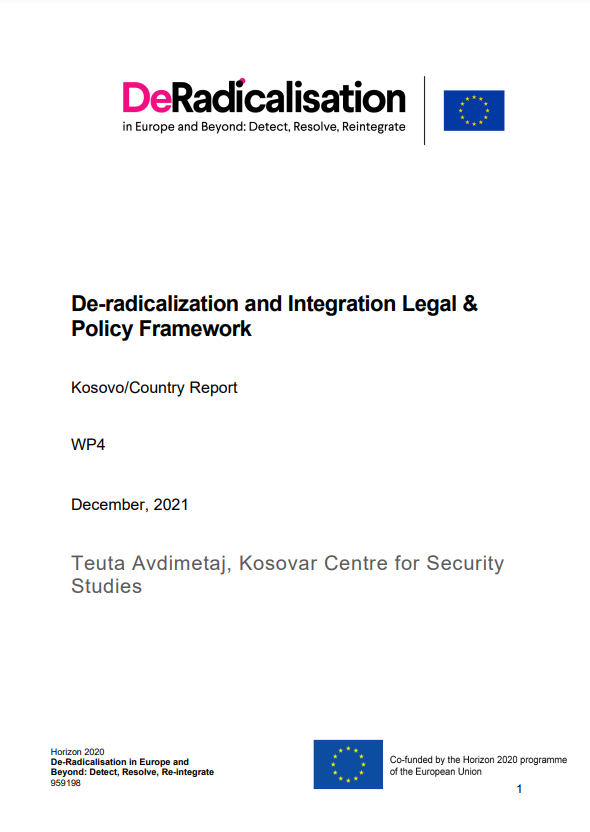20/12/2021

This report provides an overview of Kosovo’s legal and strategic framework in the field of radicalization and de-radicalization. In doing so, it looks into the broader constitutional provisions as well as specific laws that may directly or indirectly relate to the fields of radicalization and deradicalization. Given that the issue of radicalization presents an evolving threat, the report also takes into consideration the evolution of the policy framework in efforts to address it. Specifically, it accounts for key government policies that sought to manage the threat of radicalization and violent extremism, including an early counterterrorism focused approach and the gradual shift from punitive measures to an integrative approach. The latter is comprised of rehabilitation and reintegration programs that present the cornerstone of current policymaking regarding the threat of radicalization and violent extremism. These programs are especially relevant in the context of a relative high number of conflict-zones returnees that were formerly associated with violent extremist groups as well as individuals who have been formerly incarcerated on terrorism-related changes. To obtain a better understanding of R&R programs, this report includes one case study on the reintegration programs being implemented by the Division for the Prevention and Reintegration of Radicalized Persons and another case study on rehabilitation programs currently underway within Kosovo’s prisons. Overall, a number of lessons emerge which lay out the challenges that Kosovo faces in addressing the threat violent extremism while highlighting the contextual factors in shaping up its counter-radicalization policy.